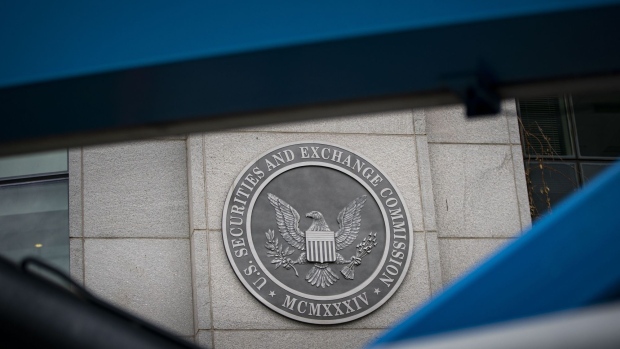Aug 10, 2022
Hedge Funds Face SEC Demand to Share More About Their Strategies
, Bloomberg News

(Bloomberg) -- Hedge funds would have to start giving the government significantly more information about their investment strategies under a proposal from the Securities and Exchange Commission to better keep tabs on risks to the financial system.
The expansion of confidential filings that big managers must file quarterly with the SEC would mark one of the biggest increases in regulation for the private-fund industry in a decade. The effort is the latest move by Biden administration regulators to clamp down on a relatively opaque corner of finance that they say can have major impacts on markets.
The plan represents a dramatic reversal of fortune for hedge funds after years of fending off tougher Washington oversight. In January, the SEC took a step toward requiring large hedge funds and private-equity firms to more quickly report major losses and redemptions. The regulator is also considering ways to make fees more transparent.
Private funds make up “a significant part of our financial system that is growing,” Gary Gensler, the agency’s chair, told reporters on Wednesday. “We can play a role by upping at least some of the transparency.”
While specific data included on the so-called Form PF isn’t made public, regulators can use it in enforcement actions and to assess broader market risks. The changes, which the agency’s three Democrats voted to propose during a commission meeting, immediately drew pushback from the industry and the SEC’s two Republican commissioners.
“Alternative asset managers currently provide extensive information to regulators,” Bryan Corbett, the chief executive officer of the Managed Funds Association, said in a statement. “The SEC should focus on better utilizing this information rather than imposing new burdens on fund managers that are of dubious utility.”
According to Gensler, regulators need the additional data to keep pace with the growth of the industry. He said that funds have grown much larger and their structures more complex since the confidential filings were first required after the financial crisis. The changes would also give regulators more visibility into hedge funds’ exposure to digital assets and associated risks, he told reporters.
The US Commodity Futures Trading Commission also announced on Wednesday that it had voted to propose the changes.
Under the plan, big firms would have to separately report each component included in complex structures, such as master-feeder arrangements and parallel funds. The current practice of aggregated reporting “obscures risk profiles and makes comparisons of complex structures difficult,” the SEC said in a statement. Existing reporting by advisers may not fully identify the potential risks hedge funds and private-equity are taking on, the agency said.
The additional information would help agencies, as well as the Financial Stability Oversight Council, which includes banking regulators, gain a better understanding of the industry’s potential as a source of systemic risk, the SEC said. The proposals would apply to hedge funds with net asset values of at least $500 million, the SEC said.
Confidential information that funds file already can reveal the amount of debt piled onto the companies in buyouts, as well as where firms are investing. However, industry lobbyists have argued that the data gathered is of limited utility to regulators. What’s more, they say, the forms could reveal proprietary information behind investment strategies and pose a data security risk. As a result, access to the forms are very limited within the SEC.
Republican SEC Commissioner Hester Peirce blasted the proposal as an attempt to “scrape up greater information about private funds” and expand regulation of private markets. She also said the SEC was leaning on a “false narrative” that systemic risk “lurks behind every hedge fund activity” in justifying the need for the proposal.
The regulator will take public comment for at least 60 days on the proposal and consider feedback it receives. The SEC may then revise the proposal before holding a second vote to finalize the regulation several months from now.
(Updates with CFTC vote to also propose the changes in eighth paragraph.)
©2022 Bloomberg L.P.





